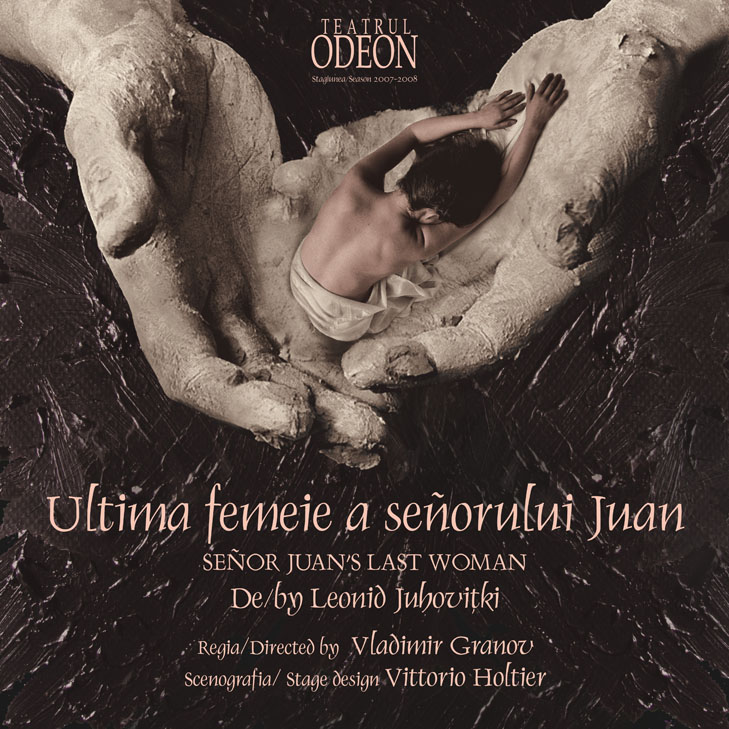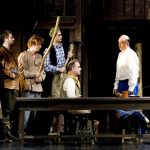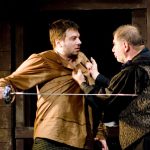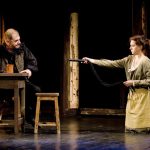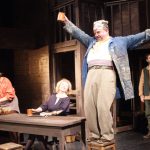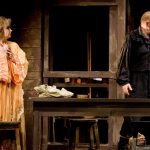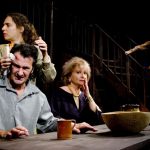by Leonid Juhovitki, directed by Vladimir Granov
Juan: Florin Zamfirescu
Elvira: Irina Mazanitis
Carlos: Mugur Arvunescu
Conchita: Katia Pascariu
The landlord: Mircea Constantinescu
Matilda: Angela Ioan
Mijo: Gabriel Pintilei
The Executioner: Ionel Mihăilescu
The Swordsmen: Dimitrii Bogomaz, Ionuţ Kivu, Relu Poalelungi
Artistic direction and stage fights: Vladimir Granov
Stage design: Vittorio Holtier
Translated by Maria Dinescu
Contemporary Drama Festival, Brașov, November 15, 2008
Classical Theatre Festival, Arad, October 22, 2008
Press reviews
Irina Mazanitis is excellent in the role of Don Juan’s wife, Mugur Arvunescu is convincing, Mircea Constantinescu pushes his role to burlesque, in an original way, and Gabriel Pintilei manages with success a role of an authentic poet from another time. The play has two essential stakes, which give an important plus: the art of utternace and the art of stage fighting. In a play of this genre, staged after the classical canons, the utternace becomes a point of support, which is ment to individualize the character, more than in other plays. The spontaneity of Florin Zamfirescu, the equal tone of Ionel Mihailescu, the harsh role played by Irina Mazanitis, the over the top declamation of Gabriel Pintilei or the insipid used in the voice by Mircea Constantinescu bring a plus of expressiveness to the stage, keeping the audience interested. The fightning scenes, used carefully by the director (even if or just because he is a biomecanic teacher) have 3 actors performing: Dimitrii Bogomaz (actor with a colossal expresive potential), Ionut Kivu and Relu Poalelungi, perfectly sincronized and convincing.



